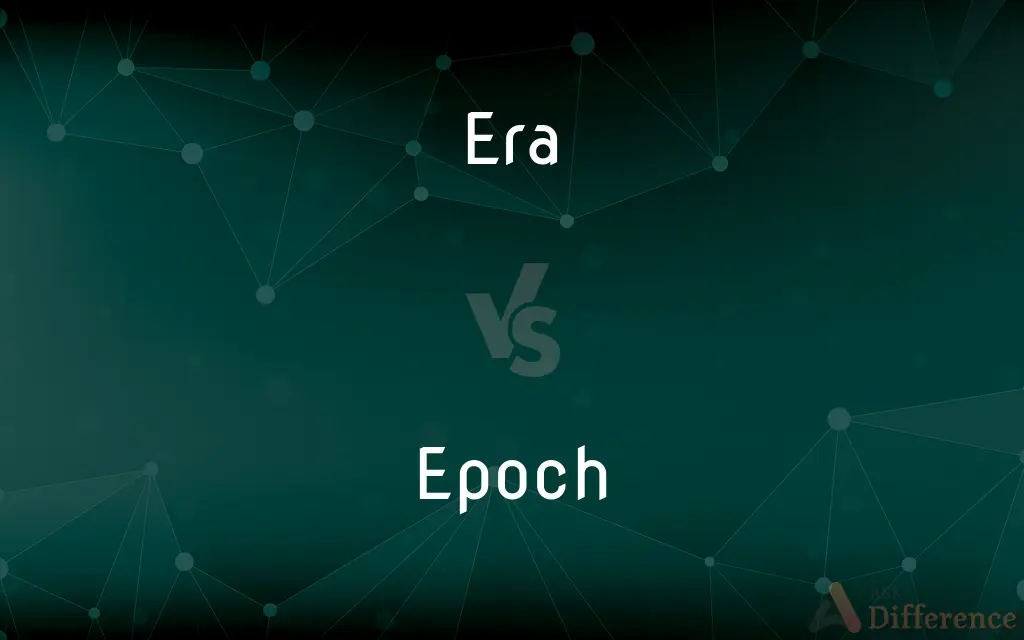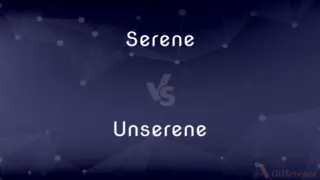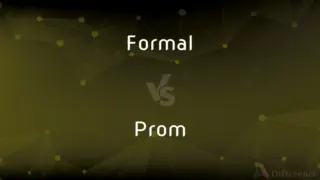Era vs. Epoch — What's the Difference?
By Tayyaba Rehman & Urooj Arif — Updated on March 4, 2024
Era refers to a long and distinct period of history with a characteristic feature or figure, while an epoch signifies a specific point in time that marks the beginning of a new period or era.

Difference Between Era and Epoch
Table of Contents
ADVERTISEMENT
Key Differences
Era is a broad term that encompasses significant periods in history, characterized by distinctive features, events, or figures. It marks substantial spans of time, such as the Victorian Era or the Digital Era, highlighting changes in society, technology, or governance. Epoch, on the other hand, focuses on a narrower slice of time, often used to pinpoint the start of these significant periods or to denote specific stages within an era, illustrating transitions or pivotal moments.
While an era often spans several years or even centuries, reflecting prolonged periods of historical development or cultural shifts, an epoch refers to shorter, more defined periods within these eras. For instance, the Mesozoic Era is divided into several epochs, including the Jurassic Epoch, indicating more specific intervals of geological or historical significance.
Both terms are used with greater precision to describe the Earth's history. An era is one of the larger divisions of geological time, subdivided into periods, which are in turn divided into epochs. This hierarchical structure allows scientists to discuss Earth's history and the life it has supported in a detailed and organized manner.
The distinction between an era and an epoch can sometimes blur, as both terms are used to discuss periods of change. However, the key difference lies in their scope and the specificity with which they are used. An era refers to a broader, significant span of time, while an epoch denotes a specific moment or period that signifies the beginning or end of such a span.
Despite their differences, both era and epoch highlight the human desire to categorize and understand the passage of time. They provide a framework for discussing the continuity and change in history, whether it be through the lens of human civilization or the broader scope of geological and evolutionary time.
ADVERTISEMENT
Comparison Chart
Definition
A long and distinct period of history with characteristic features.
A specific point in time marking the beginning of a new period.
Scope
Broad, encompassing significant spans of time.
Narrower, denoting specific stages within an era.
Duration
Can span several years or centuries.
Refers to shorter, more defined periods.
Usage
Used to highlight changes in society, technology, or governance.
Used to pinpoint transitions or pivotal moments within an era.
Example
The Industrial Era, marked by technological advancements and societal changes.
The Eocene Epoch, indicating a specific geological time frame within the Paleogene Period.
Compare with Definitions
Era
Reflects prolonged periods of development or change.
The Roman era spanned several centuries, leaving a lasting impact on Western civilization.
Epoch
Used to discuss specific stages or changes within an era.
Each geological epoch helps scientists understand Earth's climatic and biological history.
Era
Highlights broad historical movements or phases.
The digital era has transformed how we communicate, work, and live.
Epoch
Applied in both historical and scientific contexts to denote periods of change.
The Anthropocene is proposed as an epoch to highlight the significant impact humans have on Earth's geology and ecosystems.
Era
A significant period in history known for distinctive characteristics or events.
The Renaissance era was a time of great artistic and scientific awakening in Europe.
Epoch
Denotes transitions or pivotal moments.
The discovery of penicillin was an epoch-making event in the field of medicine.
Era
Marked by notable figures, technological advancements, or cultural shifts.
The era of classical music produced some of the most enduring compositions in history.
Epoch
A specific point or period marking the start of a new era or phase.
The fall of the Berlin Wall marked an epoch in European history.
Era
Often used in discussions of historical, cultural, or technological periods.
The Victorian era is renowned for its contributions to literature and societal norms.
Epoch
Generally refers to more concise periods within broader eras.
The Pleistocene Epoch saw significant developments in the evolution of humans.
Era
An era is a span of time defined for the purposes of chronology or historiography, as in the regnal eras in the history of a given monarchy, a calendar era used for a given calendar, or the geological eras defined for the history of Earth. Comparable terms are epoch, age, period, saeculum, aeon (Greek aion) and Sanskrit yuga.
Epoch
In chronology and periodization, an epoch or reference epoch is an instant in time chosen as the origin of a particular calendar era. The "epoch" serves as a reference point from which time is measured.
Era
A period of time as reckoned from a specific date serving as the basis of its chronological system.
Epoch
A particular period of history, especially one considered remarkable or noteworthy.
Era
A period of time characterized by particular circumstances, events, or personages
The Colonial era of US history.
The Reagan era.
Epoch
A unit of geologic time that is a division of a period.
Era
A time period of indeterminate length, generally more than one year.
Epoch
A particular period of history, or of a person's life, especially one considered noteworthy or remarkable.
Era
A period of time in which a new order of things prevails; a signal stage of history; an epoch.
Painting may truly be said to have opened the new era of culture.
Epoch
A period marked by distinctive character or reckoned from a fixed point or event
Epoch
A unit of geological time
Common Curiosities
How do scientists use the term epoch in geology?
In geology, an epoch is a subdivision of geological time that marks specific intervals within periods, helping scientists discuss Earth's history and evolutionary changes in a detailed manner.
Can an epoch span several years?
While an epoch generally refers to more concise periods, it can span several years, especially in geological contexts, where it denotes specific stages within broader time divisions.
Why are eras important in history?
Eras provide a framework for understanding and categorizing significant periods of change and development across various aspects of human civilization, including culture, technology, and governance.
Can there be multiple epochs within an era?
Yes, an era can encompass multiple epochs, each representing distinct stages or transitions within the broader period.
What makes an event epoch-making?
An event is considered epoch-making if it leads to significant changes or marks the beginning of a new phase or period in history, science, or any other field.
What is an era?
An era is a lengthy, distinct period in history characterized by specific features, events, or figures, reflecting significant changes or developments.
What role do technological advancements play in defining an era?
Technological advancements often define eras by marking periods of significant innovation and change, influencing how societies function, communicate, and evolve.
How is an epoch different from an era?
An epoch is a specific point or period that marks the beginning of a new era or a significant stage within an era, often denoting transitions or pivotal moments.
How do cultural shifts influence the start of a new era?
Cultural shifts, such as revolutions in art, science, or thought, can signify the beginning of a new era by fundamentally changing societal norms, technologies, and worldviews.
Is the concept of epochs applicable outside of geology?
Yes, the concept of epochs is also applicable in historical and cultural contexts, denoting significant periods of change or pivotal moments within broader eras.
Share Your Discovery

Previous Comparison
Serene vs. Unserene
Next Comparison
Formal vs. PromAuthor Spotlight
Written by
Tayyaba RehmanTayyaba Rehman is a distinguished writer, currently serving as a primary contributor to askdifference.com. As a researcher in semantics and etymology, Tayyaba's passion for the complexity of languages and their distinctions has found a perfect home on the platform. Tayyaba delves into the intricacies of language, distinguishing between commonly confused words and phrases, thereby providing clarity for readers worldwide.
Co-written by
Urooj ArifUrooj is a skilled content writer at Ask Difference, known for her exceptional ability to simplify complex topics into engaging and informative content. With a passion for research and a flair for clear, concise writing, she consistently delivers articles that resonate with our diverse audience.















































